Chapter 15: Testing and Exercising Phase for KidSTART

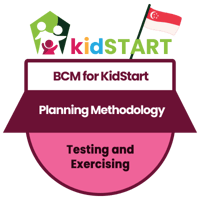 This chapter delves into the Testing and Exercising (TE) phase within the KidSTART BCM planning methodology.
This chapter delves into the Testing and Exercising (TE) phase within the KidSTART BCM planning methodology.
This TE phase is essential to evaluate the developed BC Plans' effectiveness and identify areas for improvement.
By simulating real-world scenarios and testing the organisation's response capabilities, KidSTART can ensure that its BCM Plans are robust, realistic, and capable of effectively mitigating the impact of disruptions.
This chapter will explore a range of testing and exercising methodologies, including initial tests such as component tests, call notification tests, and walkthrough exercises.
It will then delve into more advanced testing scenarios like integrated, simulation, and live tests.
By conducting a phased approach to testing and exercising and continuously reviewing and updating BCM Plans based on the findings of these tests and exercises, KidSTART can enhance its resilience and ensure the continued delivery of essential services to vulnerable children and families.
Types of Exercises
The testing and exercising program should incorporate a phased approach, starting with basic tests and gradually progressing to more complex and realistic scenarios.
Initial Tests
These initial tests are designed to evaluate basic functionalities and ensure that essential components of the BCM Plans are working as intended:
- Component Tests: These tests focus on individual components of the BCM Plans, such as:
- Communication systems: Testing the effectiveness of communication channels, including phone trees, email alerts, and emergency notification systems.
- Data backup and recovery systems: Testing the functionality of data backup and recovery procedures.
- IT systems: Testing the functionality of critical IT systems and applications.
- Call Notification Tests: These tests involve initiating emergency calls to key personnel to assess the speed and accuracy of the notification process.
- Walkthrough Exercises: These exercises involve a step-by-step review of the BCM Plans with key personnel to identify gaps, inconsistencies, or areas for improvement.
Advanced Tests
Once the initial tests have been completed and any identified issues addressed, more advanced tests can be conducted to simulate real-world scenarios:
- Integrated Tests: These tests involve testing the interaction and coordination between different components of the BCM Plans, such as communication systems, data recovery procedures, and staff response procedures.
- Simulation Tests: These tests simulate real-world scenarios, such as a fire, a power outage, or a pandemic, to evaluate the organisation's response capabilities and identify areas for improvement.
- Live Tests: These tests involve partially or fully activating the BCM Plans in response to a real-world event, allowing the organisation to test its response capabilities in a live environment.
Key Considerations for KidSTART Singapore
- Focus on Vulnerable Populations: When conducting exercises, prioritise the needs and safety of vulnerable children and families.
- Community Involvement: Involve community partners and other stakeholders in relevant exercises to facilitate coordinated responses.
- Continuous Improvement: Regularly review and update BCM Plans based on the findings of TE activities.
- Documentation and Debriefing: Document all TEg activities, including test objectives, procedures, results, and lessons learned. Conduct thorough debriefing sessions after each exercise to identify areas for improvement.
Summing Up...
The Testing and Exercising phase is crucial for ensuring the effectiveness and relevance of KidSTART's BCM system.
By conducting a phased approach to testing, starting with basic tests and gradually progressing to more complex scenarios, the organisation can identify and address potential weaknesses, refine its response capabilities, and build a culture of preparedness and resilience.
This chapter highlights the significance of a systematic and progressive testing and exercise method. This method guarantees that the BCMS is regularly assessed and enhanced to effectively address the changing needs of KidSTART and the vulnerable communities it supports.
More Information About Business Continuity Management Courses

 To learn more about the course and schedule, click the buttons below for the BCM-300 Business Continuity Management Implementer [B-3] course and the BCM-5000 Business Continuity Management Expert Implementer [B-5].
To learn more about the course and schedule, click the buttons below for the BCM-300 Business Continuity Management Implementer [B-3] course and the BCM-5000 Business Continuity Management Expert Implementer [B-5].
![Register [BL-B-3]*](https://no-cache.hubspot.com/cta/default/3893111/ac6cf073-4cdd-4541-91ed-889f731d5076.png) |
 |
 |
 |
 |
 |
![FAQ [BL-B-3]](https://no-cache.hubspot.com/cta/default/3893111/b3824ba1-7aa1-4eb6-bef8-94f57121c5ae.png) |
If you have any questions, click to contact us.
|
 |
 |
 |
 |


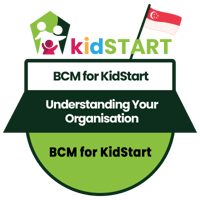
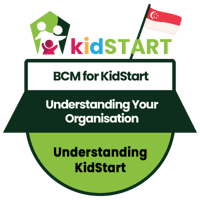
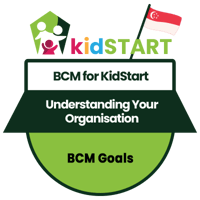
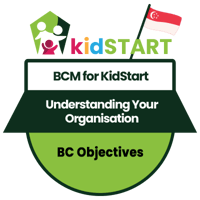
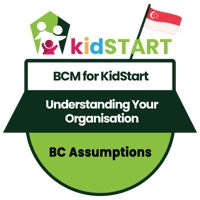
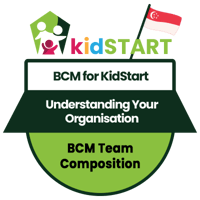
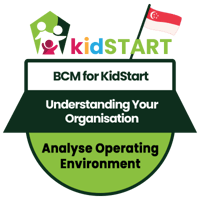
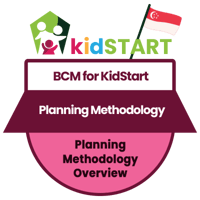
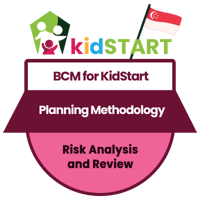
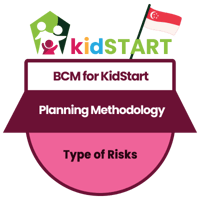
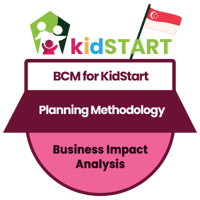
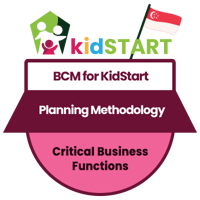
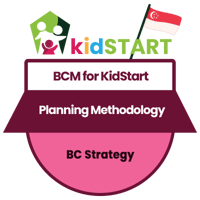
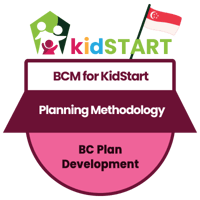
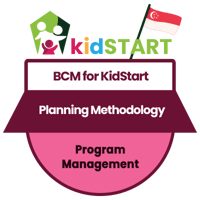
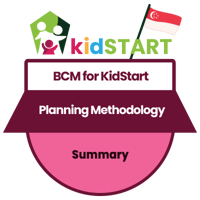
![Email to Sales Team [BCM Institute]](https://no-cache.hubspot.com/cta/default/3893111/3c53daeb-2836-4843-b0e0-645baee2ab9e.png)

